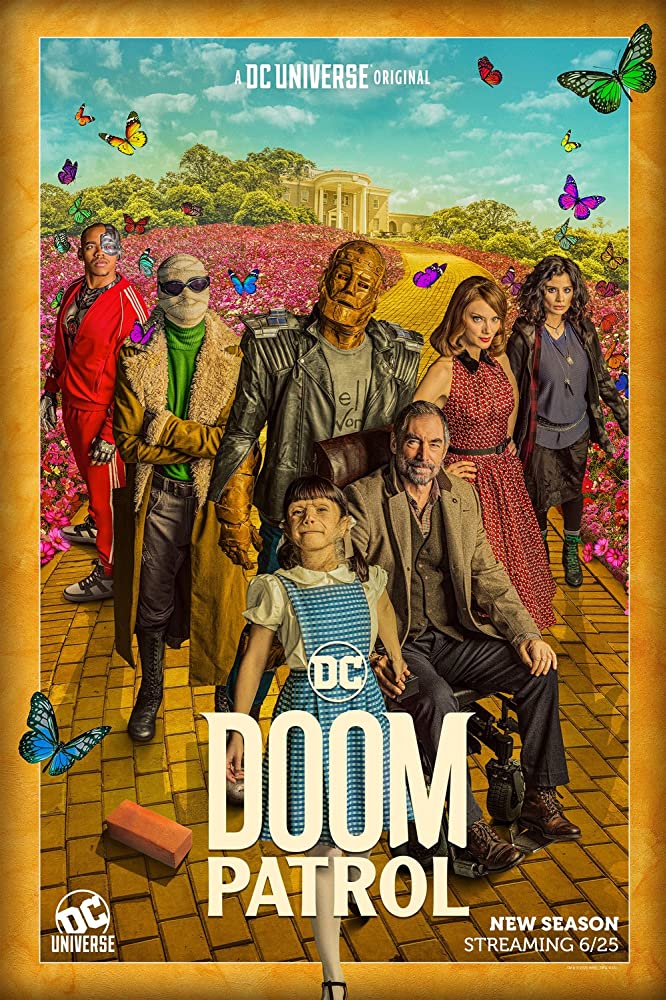“Doctor Who” returns to BBC America Sunday, Oct. 7 starting at 11:45am with the Season 11 opener “The Woman Who Fell to Earth.”
Latest Article|September 3, 2020|Free
::Making Grown Men Cry Since 1992
Alibi
\
3 min read
Legions of “Doctor Who” fans are waiting in something between eager anticipation and deep trepidation for Season 11 of their favorite sci-fi show to return. (Technically, counting the 1963 to ’89 “Original Era” and the 2005 to present “New Era,” this is season 37.) The source of this uncertainty is the fact that the BBC is giving “Doctor Who” its biggest reboot in series history, recasting its main character as a woman (Jodie Whittaker, best known for her role in the cult science fiction film Attack the Block). Your reaction to this probably says more about your personal beliefs than your taste in popular entertainment.In any other movie or TV series, such a major transformation of the main character would seem jarring. But this is “Doctor Who.” The Doctor is a 900-year-old (give or take) alien Time Lord from the planet Gallifrey who travels around the universe in a time machine disguised as a phone booth. Time Lords have the ability to regenerate new bodies periodically. A total of 13 widely divergent actors have played The Doctor since 1963—and that’s just counting the series leads! The Doctor’s arch enemy The Master (John Simm at the time) even regenerated into The Mistress (Michelle Gomez) in 2014, establishing precedent. So, giving The Doctor a female body to inhabit for a while is perfectly in keeping with the show’s canon. For the vast majority of the show’s run, the character has been completely asexual anyway. So what’s the big deal?Well, in 2018 America, gender is a big deal. Countless outlets have already dubbed 2018 “The Year of the Woman,” and it’s hard to argue. Women have captured news headlines on a regular basis as they battle politicians and perceptions on a national level. Sexism (and racism and just about every other toxic “ism” that we still have) is breathing its last gasps. At the same time, realizing that they’re dying, these various archaic belief systems are fighting back with the tenacity of a person with nothing left to lose. It’s no secret that younger people have less of a problem with diversity than older generations. Fandom in general (and science fiction fandom in particular), however, seems to lag behind the times. In the past several years, these subcultures have been rocked by scandals like Sad Puppies, GamerGate and ComicsGate. Basically, they all involve small yet very vocal groups of online protesters decrying the inclusion of women, minorities and the LBGT community in pop culture. Unsurprisingly, a handful of fans have balked, claiming “Doctor Who” has now been “ruined” by “political correctness.” Needless to say, the casting of Whittaker hasn’t ruined the show. The actress seems charming and fun and should add a spark of excitement to a show that’s gotten a bit dour over the past few seasons. At this point it’s really up to the writers to provide solid motivation for the transformation. If The Doctor is now a woman and that has absolutely no effect on the narrative, then there will have been little point. If it turns out to be one of those temporary “Captain America is dead/black/a Nazi” stunts, then it will be a similarly weak move. Weave some clever, thought-provoking and most of all entertaining storylines around this new Doctor and fans will climb on board for more.



